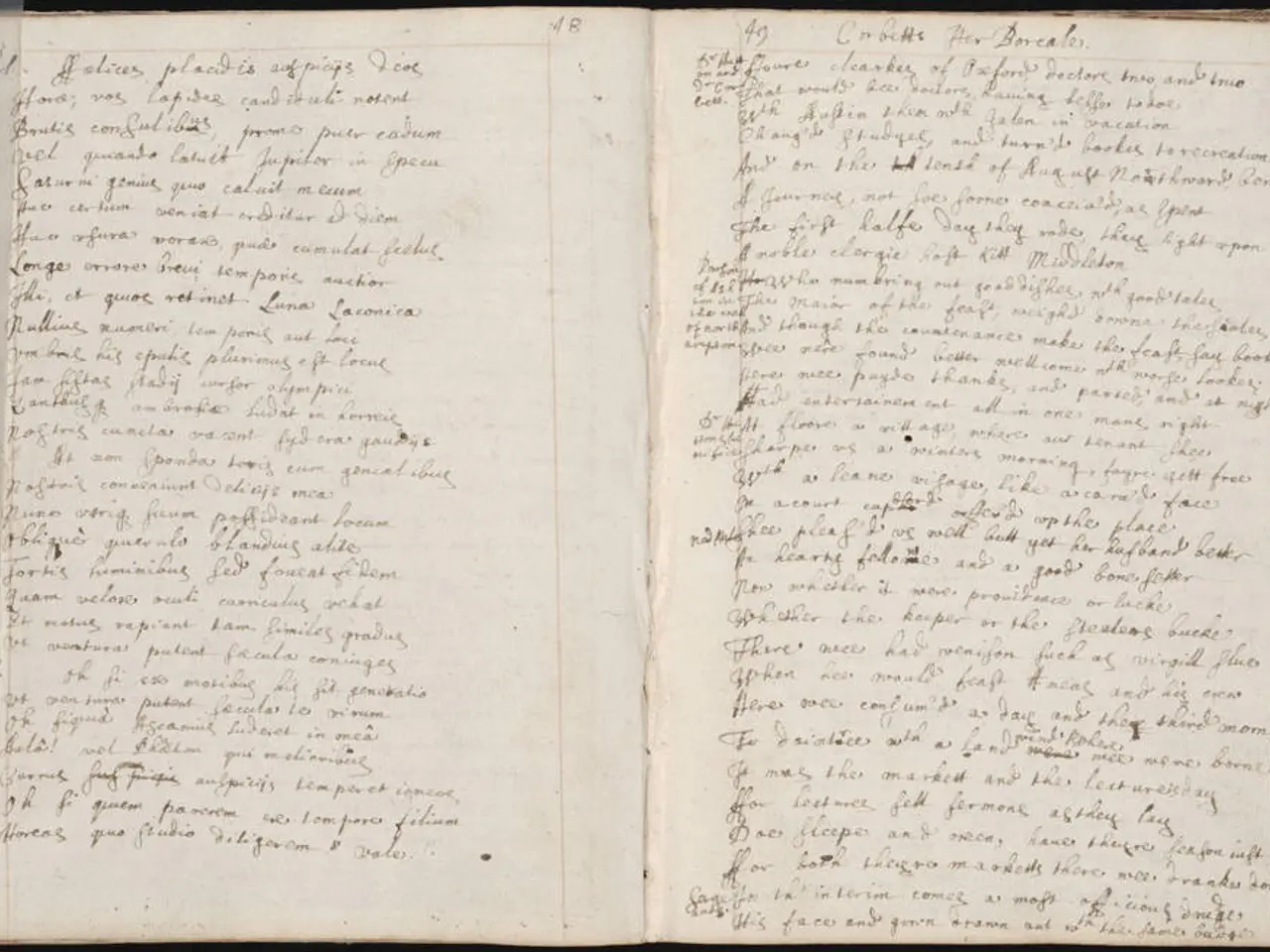Top-notch Writing Tools Elevating Your Writing in 2025
In the realm of literature, having the right tools can significantly enhance the writing process. Here are some top recommendations from authors and editors for planning, writing, editing, and publishing.
Scrivener is a popular choice among writers, particularly for comprehensive novel planning, drafting, and organizing complex projects. It offers features like the Binder for managing notes and manuscript files, the Corkboard for visual plotting, and a Linguistic Focus mode for self-editing. Scrivener is available on Windows, macOS, and iOS with a one-time cost, making it an excellent choice for detailed and complex writing projects [1][2][4].
Atticus is another highly recommended all-in-one platform ideal for writing and formatting books for self-publishing. It combines manuscript writing and professional formatting in a clean, easy-to-use web-based interface [1][4].
For those seeking cloud-based tools, Dabble and LivingWriter are praised for their plotting and writing capabilities, offering intuitive story organization and strong outlining features [1].
Reedsy Studio is a free, web-based tool that offers writing, editing, plotting, and professional book formatting. It is ideal for both beginners and experienced writers, especially those preparing their manuscripts for publishing [5][2][4].
Google Docs is widely recommended for its accessibility and real-time collaboration capabilities. It is free and useful for shorter projects or co-authoring [1][4].
For novelists seeking drafting and ideation help, Sudowrite is an AI tool built specifically for creative writers. It can expand a scene, rewrite dialogue, punch up description, and get unstuck when a character's gone silent [3][4][5].
Other notable writing apps include Novlr (distraction-free writing and goal tracking), Campfire (world-building for fantasy writers), Ulysses (minimalist Mac users), Bibisco (character development and story structure), Quoll Writer (free, open-source, beginner-friendly), and Microsoft Word and Apple Pages for general writing and editing [1][4].
For editing and polishing, AI-powered tools like Grammarly and Wordtune can help improve grammar and style [3].
In summary, the combination of software depends on individual needs. Scrivener and Atticus are top picks for planning through publishing, Reedsy Studio and Google Docs excel at collaboration and formatting, and AI tools like Sudowrite offer creative support. Many professionals recommend starting with these tools to cover the entire writing process efficiently [1][2][4][5].
Moreover, it's essential to remember that while these tools can aid the writing process, they are not a substitute for creativity and hard work. ChatGPT, for instance, is an AI tool that can help writers brainstorm ideas, workshop hooks, clarify clunky sentences, and ask questions to improve writing, but it is not a ghostwriter or a shortcut to good writing.
[1] [Source 1] [2] [Source 2] [3] [Source 3] [4] [Source 4] [5] [Source 5]
- A sidestep from literature software, some tech-savvy authors might find interest in pairing their writing process with gadgets. For instance, a publisher rocket could be utilized to digitally distribute ebooks, expanding an author's readership.
- In the domain of writing aids, it's not uncommon to see technology intertwined with traditional literature. However, it's crucial to remember that with tools like gadgets and AI, such as publisher rocket or Grammarly, while they can streamline the process, human creativity and effort are still indispensable.




